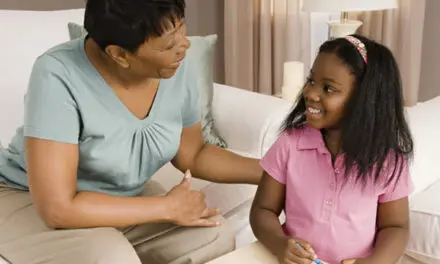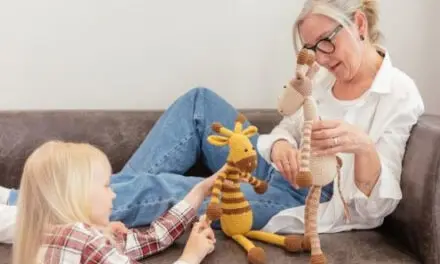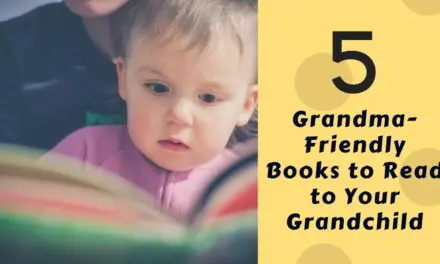by Carolynn J. Scully
I was privileged to meet my youngest grandlady, Emma, when she was about an hour old. She was resting on her mothers’ chest, listening to the music of mom’s heartbeat. My son stood grinning proudly at his baby girl. The room was quiet, so I spoke in a whisper, “She is so beautiful!” Then, Emma burst into screams!
From that moment on until she was about four years old, she cried and scowled at me, and seemed to want to avoid me. I had done nothing wrong, but it was clear that she didn’t like me. Now, she cries when she has to leave my house! What changed? Why will she now tell me she loves me, give me hugs and share sweet secrets with me? I believe the answer lies in the following “rules” that I have for my grandchildren.
Rules are like fences that provide boundaries within relationships, but they also give us freedom. They rein in the positive and push away the negative. Parents have the responsibility to set up the fences around their children. As grandparents, we can build another line of fences around our children and grandchildren to help us interact wisely with the younger generations.
As a woman of faith, I believe God has given us “rules” of love, grace, forgiveness, hope and joy. They are meant to be set up like a fence, each one connecting to the others and forming an enclosure to keep out the negative influences in relationships. Each one adds to the others and makes the whole stronger.
Love
Love is not promised to us. And love is not a feeling, but a choice we all make. We must never make the mistake of believing that we can demand love. We can make ourselves loveable, but we cannot make grandchildren choose to love us.
Starting when grandbabies are born, we must choose good ways to chase after their hearts. Bribery and manipulation are only ways to control behavior, never great paths to loving relationships. Giving treats or gifts can be a way to show you are fun, caring, and generous, but when given with strings attached, you step out of positive bonding and fall into selfishness.
At every age, children should be given the choice to be held or kissed or to spend time talking to us. This can be difficult for grandparents. We know our time is limited, and our love is so strong.
For me, it was very difficult to watch so many other people cuddle and love on Emma. I cried in secret, but in her presence, I stood back and watched with a smile. I cheered her on and delighted in what I saw in her, even if I couldn’t delight in her actions toward me. I didn’t pout or reject her. I offered love that said I wanted what was best for her, not for me. Eventually she learned that I respected her as a person, and she learned to give me that same kind of love.
Grace
Without love we are unable to offer grace. Grace is being able to see the best in our grands and their parents. With love we can delight in the talents of our grands, but when temperaments grow moody or even wild and crazy, it may take some grace to keep out the negative and find a treasure.
Five of our grands have gone through or are now in the moody teen years. Family gatherings sometimes find them sulking away in a corner. It is so easy to get angry and bark orders to join the fun, but it only serves to push them further into their private world. Grace speaks gently. It believes the best and allows for the possibility that maybe they aren’t intentionally showing disrespect; maybe they are fighting inner battles or seeking to find who they are apart from the clan.
Our other two grands are in the “run, scream and slam” stage. They run through the house, scream for all reasons, and slam the doors even as we shout out, “Don’t slam the door.” Grace, again, trusts that they aren’t willful in their actions, they simply haven’t yet learned to control their excitement for life.
In both stages, it is okay to speak softly to the person and explain how you feel and what you would like. Ask questions about how they see the situation or how they feel. Grace leaves the conversation with the grandchild having a choice and understanding the consequences.
Forgiveness
Grace opens our hearts to forgiveness. Forgiveness unties the ropes that bind us to negative thoughts. Forgiveness requires humility—because we all need to be forgiven.
These last two years have been difficult for our family. Hurts and grievances weighed us all down. In these times our family uses actions to focus on God. This past New Year’s we had a family time around a fire pit where we prayed and wrote down things we wanted to forgive and forget. Then, without sharing (unless someone wanted to), we burned them.
The hardest thing I had to forgive was a pattern of unwise choices by one of my grands that impacts us to this day. Seeing them hurt themselves and others calls for a deeper measure of forgiveness—what I believe reflects God’s unrestrained mercy for us all. And that kind of mercy helps to restore hope for the future. That night, our grands watched as parents and grandparents made decisions to forgive and let go of hurts and bitterness. Then they, too, joined in.
Hope
We witness so much hurt, evil, and pain that we sometimes forget that hope, like love, grace and forgiveness, is a choice. It is a choice to focus on God’s blessings and the many reasons we have to be grateful. And our focus is important because our inner thoughts lead to outer behaviors, and our words and actions define our influence.
Many years ago, I began writing birthday blessings for each family member. I write an individual letter to each person, sharing with them the Scriptures and prayers that are on my heart for them, and asking God to bless them throughout the year. I am truly humbled and amazed at how much the family looks forward to these letters. They are not read and thrown away like they might with a typical birthday card; those letters are saved in books and boxes, treasured to read again and again! These letters are my way of conveying hope for their future.
Blessing others also fills me with hope. It helps me to love more deeply and pour out grace and forgiveness more readily. And that brings much joy!
Joy
Daily joy comes to us through the door of gratitude. We now have three of our grands who own cell phones and know how to text. I often text short messages to them, and they don’t always respond, but I know it’s foolish to lose my joy over that. I find simple joy in sharing my love and a prayer for them wherever they may be.
We have other grands who are just beginning to use computers and are able to Facetime when it is okay with their parents. When they call me to Facetime on the weekends, even when I have seen them throughout the week, I am filled with joy and let them know of my delight. Joy does not depend on me getting what I want. I can be a grandparent in many ways that were not possible when we were young, and that makes a difference.
Joy is a crown we pass down as an inheritance. They will remember us as being grouchy or joyful—it’s our choice. Through our giving joy, we connect with love.
Love, grace, forgiveness, hope, and joy. I believe these rules of grandparenting also reflect the character and actions of Jesus, especially when He gathered children around Him. Our grandchildren need us to do our best to live out these rules with them as well.

Carolynn J. Scully is an award-winning poet and writes other works while caring for grandchildren, Abigail and Lincoln, after school. She has worked in women’s ministries for many years and enjoys speaking to women’s groups. She has been married to her husband, Patrick, for 47 years and lives in Forest City, Florida. Her book, Something Good Inside of Me: A Children’s Poetry Keepsake Journal, was written for her seven grandchildren and is available here.





